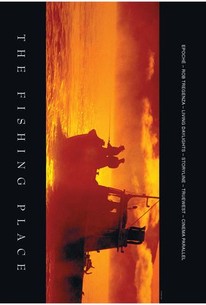The Fishing Ground: A Story of War, Redemption, and Moral Ambiguity
If you’re looking for a compelling story that combines themes of espionage, moral conflict, and the brutal realities of war, check out The Fishing Ground . This film captures the essence of its creation during the German occupation of Norway and highlights the complexities faced by its protagonist, Anna Kristiansen. For those who want to experience this stunning story, you can simply download the torrent and immerse yourself in a story that is as thought-provoking as it is exciting.
Environment: World War II Hydroelectric Town
Fishing Place has the Notodden Hydroelectric Plant behind it, an important site during WWII. When Anna sends Adam Honderich, a Lutheran minister of the German high church, to spy, the film explores the intersections of faith, morality and resistance. The characters navigate a world of shifting loyalties and ideological differences, creating an engaging story that keeps the audience on the edge of their seats.
Anna Kristiansen: Complex Main Character
The character Anna Kristiansen is full of moral dilemmas as she struggles with her newfound freedom granted to her by a Norwegian Nazi officer. Her mission to spy on a priest suspected of resistance activities puts her in a precarious position where every decision she makes has dire consequences. As Anna delves deeper into her mission, she must grapple with her own beliefs and the moral ambiguity of her situation.
Conflict and Redemption
An exploration of conflict and redemption is central to the film’s narrative arc. Anna’s journey reflects the broader issues that individuals face during war, when the lines between good and evil blur. Her interactions with Adam Honderich reveal the profound effects of war on personal relationships and spiritual beliefs. The film raises poignant questions about the nature of faith, sacrifice, and the search for redemption in chaos.
The role of fishing: a metaphor for freedom
In Fishing Place fishing is a powerful metaphor for freedom and leakage. When Adam Honderich goes fishing, it represents a brief respite from the harsh reality of war. This activity provides a moment of peace and reflection, which is in stark contrast to the tension and danger that surrounds Anna. Fishing becomes a poignant symbol of hope, depicting the possibility of finding solace even in the darkest of times.
Visual and thematic richness
The cinematography in Fishing Place captures the stark beauty of Norwegian country, juxtaposing the peaceful natural environment with the harshness of human conflicts. The thematic richness of the film is enhanced by the visual narrative, which draws the audience into Anna’s internal struggles and the external pressures of her environment. The choice to set the film in a city with a hydroelectric power plant adds layers to the narrative that reflect the dichotomy of progress and destruction experienced by the war.
Cultural Effects of War
Like Anna Jej, the film points to cultural the changes that took place in Norway during the German occupation. The intermingling of Norwegian and German influences creates a complex social structure that is rich and full of tension. This cultural background is essential to understanding the motivations of the characters and the decisions they make in the film.
Conclusion: A Must See Movie
Fishing Place is a thrilling film. , which delves into the essence of the human experience during one of history’s darkest periods. His exploration of moral ambiguity, the brutal reality of war, and the quest for redemption resonates strongly with audiences.




 11/24
11/24